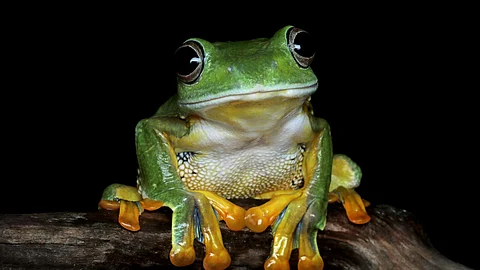Harvard Researcher Faces Smuggling Charges Over Frog Embryos
A Harvard University researcher born in Russia has been at the heart of a global travel, biological study, and asylum high-profile courtroom battle. Kseniia Petrova, 30, was recently charged with smuggling frog embryos into America.
From scientific inquiry to criminal indictment
Federal officials said Petrova was arrested Wednesday on federal charges of smuggling things into the United States, a crime punishable by up to 20 years in prison and a $250,000 fine. The case involved a January trip to France, where she visited a lab to gather samples of frog embryos to study at her college.
But when Petrova returned via Boston Logan International Airport, her duffel bag was detained by a U.S. Customs and Border Protection canine unit. Inside it, officers found a foam box filled with undeclared biological samples. While she had originally denied having any such substance, Petrova later admitted to possessing frog embryos.
Homeland Security: She "planned to smuggle" the samples
In a tweet on the platform X (formerly Twitter), the Department of Homeland Security said Petrova made false statements to officers, citing messages on her phone indicating there was a scheme to evade customs regulations.
“Lying to federal officers about carrying substances into the country.” They allege messages on her phone “revealed she planned to smuggle the materials through customs without declaring them,” the agency reported.
Fear of Return to Russia
Petrova has been detained at an ICE facility in Monroe, Louisiana, since February. She is seeking asylum in the United States because she fears she will face political persecution if she is sent back to Russia. Her deportation hearing took place in Vermont on the same day her trafficking charges were made public.
Speaking to The Associated Press on video conference while in detention last month.
Petrova said, “The truth is on my side. If I go back, I am afraid I will be imprisoned because of my political position and my position against war.”
Endorsement from the scientific community
Leon Peshkin, a second Harvard researcher and Petrova's mentor, rallied to Petrova's side and said the embryos were inert and would never have triggered such harsh legal consequences.
“I don’t think she did anything wrong. But even if she did, at most she should have gotten a warning or maybe a fine of up to $500,” he told.
Harvard University issued a brief statement saying that it was "monitoring the situation."
A life shattered by war and uncertainty
Petrova left Russia in 2022 after the invasion of Ukraine and has since been conducting academic research in the United States. Her case now stands at the intersection of science, global law, and geopolitics, inquiring into what level the legal system can stretch when intent, not action, is the issue.
(Input from various sources)
(Rehash/Muhammad Faisal Arshad/MSM)


